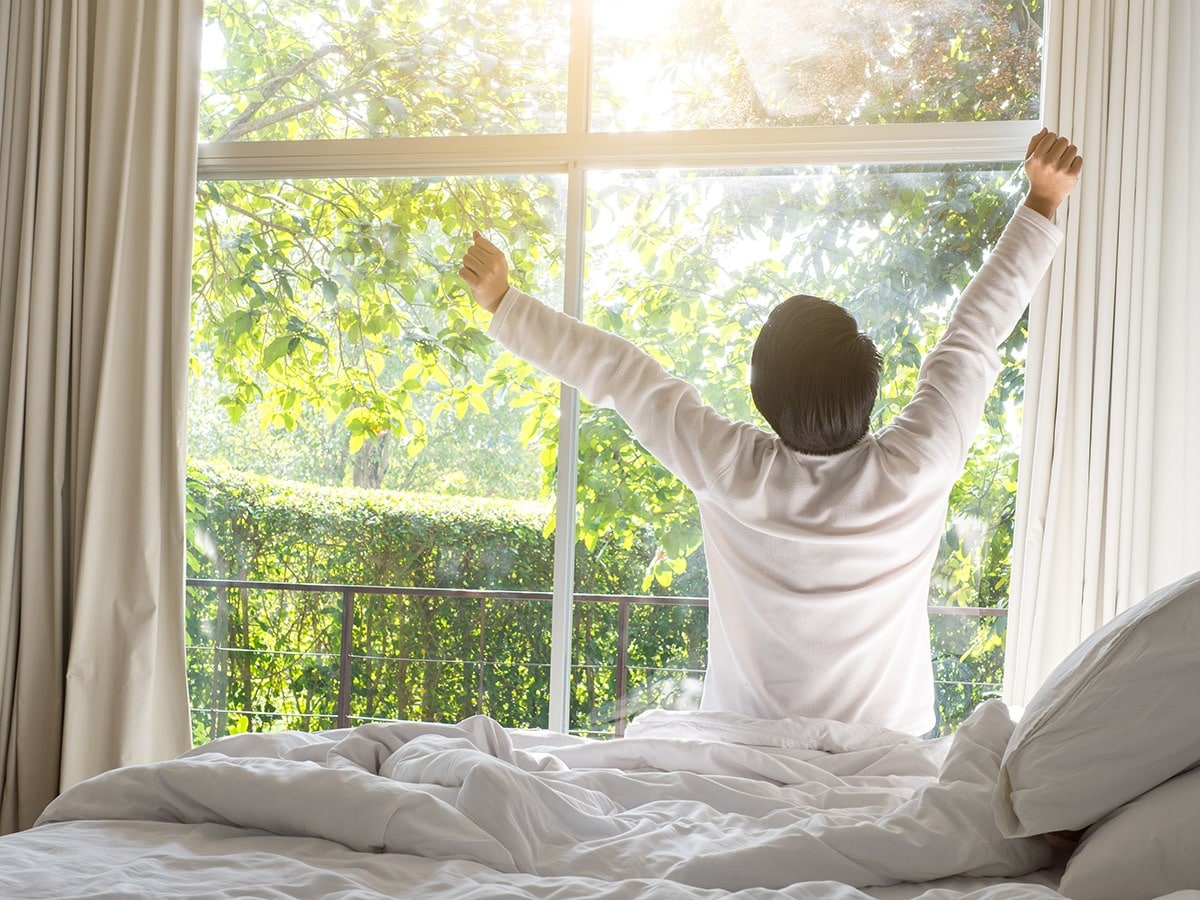We all know that we sleep better at night if we’re in a comfortable bed, in a room at the perfect temperature when it’s as dark as possible. New research published in Sleep Science and Practice shows that something less obvious can help a person sleep well — having a sense of purpose in life.
Researchers used 825 participants between the age of 60 and 99 from two existing projects, the Minority Aging Research Study (MARS) and the Rush Memory and Aging Project (MAP). Participants answered a 10-question survey designed to measure their sense of purpose in life, for which they rated their agreement with different statements on a scale of 1—strongly disagree to 5—strongly agree.
[Editor’s Note: The information provided should not be considered a substitute for professional advice. Please consult a sleep doctor or other medical expert if one has questions related to one’s own health.]
 Nattakorn_Maneerat/Shutterstock
Nattakorn_Maneerat/Shutterstock
Sample statements include, “I feel good when I think of what I’ve done in the past and what I hope to do in the future” and “some people wander aimlessly through life, but I am not one of them.” Researchers averaged participants’ responses to assign each person a score between 1 and 5, with “ higher scores indicating higher levels of purpose in life.” Participants also answered a 32-item questionnaire about their sleep quality.
“We found that higher levels of purpose in life at baseline predicted better sleep quality at baseline as well as an increased change in sleep quality over a 1-year period, a finding that is consistent with previous studies,” the researchers wrote in the paper. “Furthermore, these findings are consistent with anecdotal observations that people who have meaning and purpose in their waking activities appear to sleep well at night.”
The researchers noted a few limitations to the study. Firstly, all the data is self-reported, so it’s impossible to know whether the participants are really sleeping well — or just say they are. Plus, the study only looked at older adults, so it’s difficult to say whether this research is applicable on a wider scale. But overall, the study has interesting implications, since it proves yet again that mental health can and does affect sleep quality.
“Helping people cultivate a purpose in life could be an effective drug-free strategy to improve sleep quality, particularly for a population that is facing more insomnia,” head researcher Jason Ong told The Guardian. Sounds pretty awesome.
[Editor’s Note: The information provided should not be considered a substitute for professional advice. Please consult a sleep doctor or other medical expert if one has questions related to one’s own health.]
Featured image: Stock-Asso/Shutterstock
